To provide the best experiences, we use technologies like cookies to store and/or access device information. Consenting to these technologies will allow us to process data such as browsing behaviour or unique IDs on this site. Not consenting or withdrawing consent, may adversely affect certain features and functions.
The technical storage or access is strictly necessary for the legitimate purpose of enabling the use of a specific service explicitly requested by the subscriber or user, or for the sole purpose of carrying out the transmission of a communication over an electronic communications network.
The technical storage or access is necessary for the legitimate purpose of storing preferences that are not requested by the subscriber or user.
The technical storage or access that is used exclusively for statistical purposes.
The technical storage or access that is used exclusively for anonymous statistical purposes. Without a subpoena, voluntary compliance on the part of your Internet Service Provider, or additional records from a third party, information stored or retrieved for this purpose alone cannot usually be used to identify you.
The technical storage or access is required to create user profiles to send advertising, or to track the user on a website or across several websites for similar marketing purposes.
 Companies are searching for ways to reinvent the office and give employees reasons to return to their workplace and a new report by JLL says the focus must be on the workforce. The report, Reimagine: the new future of work to shape a better world predicts that the future of work will involve companies prioritising the health, wellness and mental well-being of employees. (more…)
Companies are searching for ways to reinvent the office and give employees reasons to return to their workplace and a new report by JLL says the focus must be on the workforce. The report, Reimagine: the new future of work to shape a better world predicts that the future of work will involve companies prioritising the health, wellness and mental well-being of employees. (more…)






 Organisations face a crisis of trust this year if they continue to make workplace decisions in the dark, according to employee experience platform,
Organisations face a crisis of trust this year if they continue to make workplace decisions in the dark, according to employee experience platform, 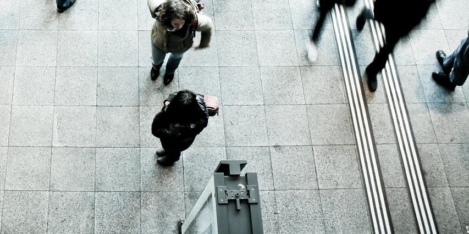
 The idea of a Global Village comes loaded with a number of idyllic connotations. Most of them derive from the use of the word village itself, which triggers the idea of a community in our minds. Yet even the man who coined and popularised the term in the 1950s and 60s to describe a world contracted by new media understood that there are always complications whenever technology rubs up against human beings.
The idea of a Global Village comes loaded with a number of idyllic connotations. Most of them derive from the use of the word village itself, which triggers the idea of a community in our minds. Yet even the man who coined and popularised the term in the 1950s and 60s to describe a world contracted by new media understood that there are always complications whenever technology rubs up against human beings. 
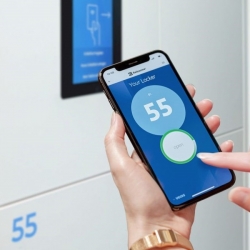 The way in which we work has changed in a way no one would have ever predicted as a result of last year’s pandemic. Consequently, many businesses have chosen to adopt to an agile working practise. This coupled with the rapid evolution of the hybrid workplace has allowed more employees than ever the flexibility to work from home, many people however still crave that interaction with colleagues, and the ‘corridor conversations’ that cannot be replicated via Zoom and can only happen with workplace collaboration.
The way in which we work has changed in a way no one would have ever predicted as a result of last year’s pandemic. Consequently, many businesses have chosen to adopt to an agile working practise. This coupled with the rapid evolution of the hybrid workplace has allowed more employees than ever the flexibility to work from home, many people however still crave that interaction with colleagues, and the ‘corridor conversations’ that cannot be replicated via Zoom and can only happen with workplace collaboration. 
 With the continuous impact of the pandemic on people’s mental health due to isolation, work uncertainty, and anxiety over health, the topic has been dominating the news, begging the question of how we can achieve accessible and cost-effective treatment for all and prevent the expected acceleration of mental health issues in the coming months. As we juggle a different type of work-life balance brought about by working from home and the added worry of how the pandemic is affecting us, there is no doubt that our daily lives have been disrupted. The statistics are alarming;
With the continuous impact of the pandemic on people’s mental health due to isolation, work uncertainty, and anxiety over health, the topic has been dominating the news, begging the question of how we can achieve accessible and cost-effective treatment for all and prevent the expected acceleration of mental health issues in the coming months. As we juggle a different type of work-life balance brought about by working from home and the added worry of how the pandemic is affecting us, there is no doubt that our daily lives have been disrupted. The statistics are alarming; 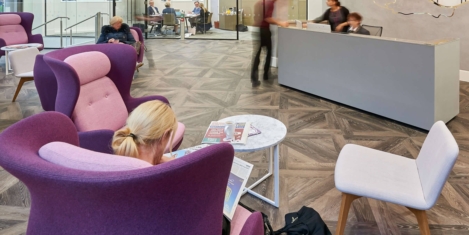
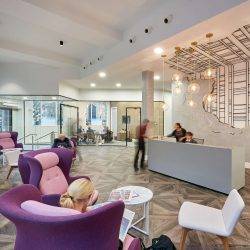 Most of the analysis about the effects of the 2020 pandemic on people’s working lives has tended to involve grand statements about new normals and the death of this or that, as if everybody wants the same things, has the same personal circumstances, works in the same ways, the same places and same sectors.
Most of the analysis about the effects of the 2020 pandemic on people’s working lives has tended to involve grand statements about new normals and the death of this or that, as if everybody wants the same things, has the same personal circumstances, works in the same ways, the same places and same sectors. 
 In a recent
In a recent 
 The pandemic has seriously altered how we work. According to statistics published by the
The pandemic has seriously altered how we work. According to statistics published by the 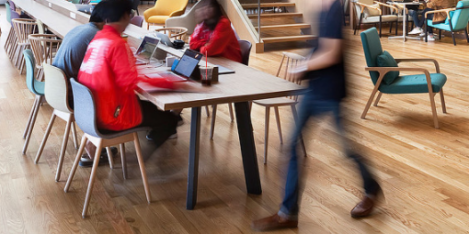
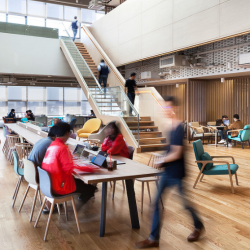 A survey issued by architecture, design, and planning firm
A survey issued by architecture, design, and planning firm 
 With a new national lockdown, the situation in the UK remains unpredictable and complicated, and renewed pressure to work from home has forced many organisations to reverse their back-to-work plans, according to a new study from
With a new national lockdown, the situation in the UK remains unpredictable and complicated, and renewed pressure to work from home has forced many organisations to reverse their back-to-work plans, according to a new study from 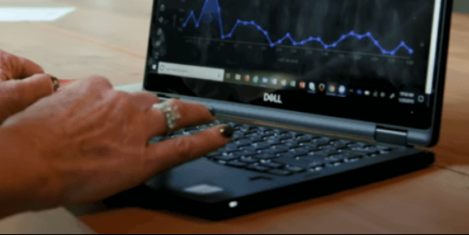
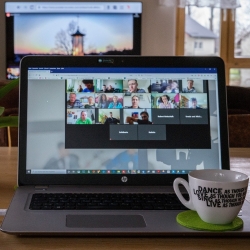 A new survey by
A new survey by 








January 12, 2021
Burnt out workers need to regain some balance
by Dan Zakai • Comment, Wellbeing, Workplace design